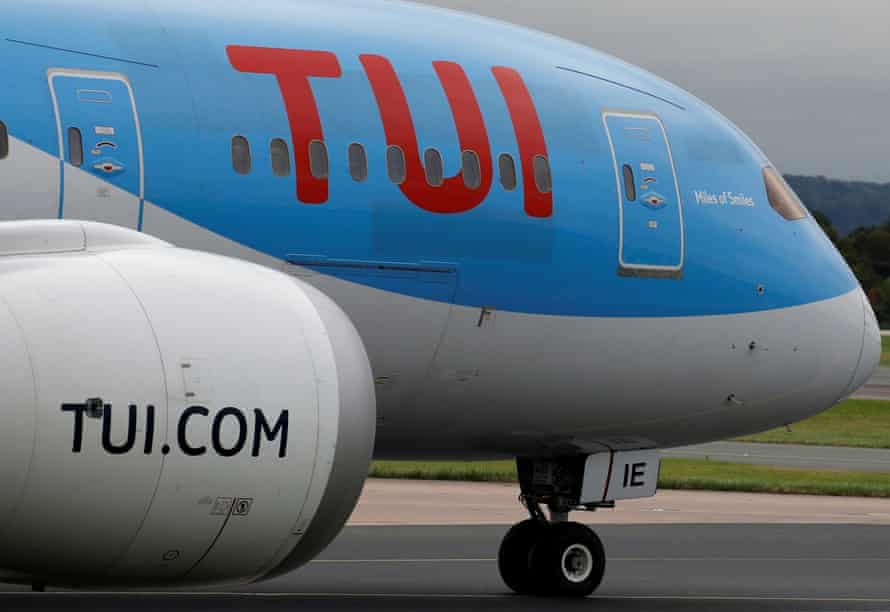Europe’s largest travel company, TUI, said bookings to Portugal had “skyrocketed” by 182% since it was placed on the UK’s green list last Friday, allowing travel without quarantine.
The chief executive, Fritz Joussen, said TUI would deploy the bigger Dreamliner planes rather than 737s to Portugal to try to meet demand for seats from England’s only green-listed mainstream holiday destination.
However, Joussen said the UK’s “very cautious” attitude to restarting travel was an obstacle to recovery for TUI and would let Europeans “get the best seats”.
He added: “The relative movement to Portugal is enormous but it’s not a particularly big destination – what is needed is Spain and Greece.”

Spain’s Balearic and Canary islands and Greece are expected to be the preferred destinations for Europeans booking long-awaited summer holidays when the travel industry reopens, Tui said, although it will operate only three-quarters of its summer 2019 capacity.
Joussen said he hoped the UK would soon add those countries, where Covid-19 incidence rates on island holiday resorts are well below 10 in 100,000 people. “Otherwise everyone in Europe will make vacation but not the UK … A colleague running an airline said to me, how come the Europeans, with higher incidence and less vaccinations, grab the best seats?”
He said the strength of pent-up demand meant TUI might sell packages into the autumn, should destinations agree. “Extending the season is a viable option.”
About 2.6 million people have booked to travel with Tui over the summer, which is slightly lower than the number reported in March, with cancellations down to travel restrictions.
The company said bookings, including those from customers who had rebooked previously cancelled trips using vouchers, were more than two-thirds (69%) lower than levels in summer 2019.
He said that while the actual price of comparable holidays was slightly lower than in 2019, customers were paying an average of 22% more: “People are trading up; instead of 10 days’ 4-star, 14 days’ 5-star.”
Customers were more likely now to opt to book a package because of the “safety demand” from the pandemic, he added.
Joussen defended offering holidays to destinations on the amber list, in contravention of the UK government advice to not travel. He said: “It’s not my judgment to say something is green or amber or red. When customers say anyway I go to Spain, we are not in the business to educate customers but to follow rules, offer safe holidays and be customer-centric.”
The German company, which announced the closure of 48 UK high street branches in March, has previously said there was strong pent-up demand for travel.
Joussen said 70% of Europeans recently surveyed wanted to travel. “Holidays are at the top of Europeans’ wish lists after the months of the pandemic. Bookings and booking trends show: holidays in the Mediterranean, in the Aegean and on a ship will be possible again for many families in the coming weeks,” he said.
Tui said it had taken thousands of passengers to Mallorca, a destination popular with German tourists, over the Easter holidays, and shown that safe travel was possible during the pandemic.
A decision by the German government to allow vaccinated and unvaccinated passengers to travel would also give customers the security to book trips, while bringing tourism back to southern European destinations, Tui said.
The company sunk to a €1.3bn (£1.1bn) underlying pre-tax loss in the six months to the end of March, and an 89% fall in revenue to €716m.
Joussen said that while debt had risen to $4.8bn, €2bn was “working capital”, while efficiency savings of about €400m annually would outstrip the additional interest burden.
This content first appear on the guardian
